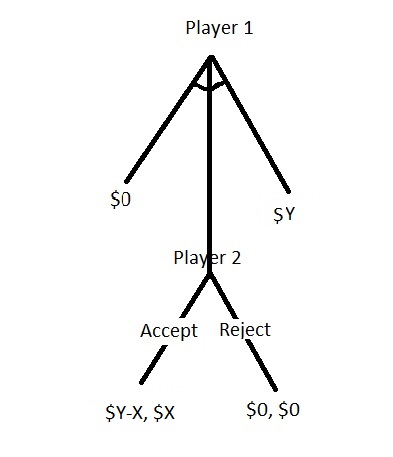In yet another Kahneman experiment, the team tried to play the ultimatum game with a group of psychology and business administration students. If you forgot what the game was, here is the description.
The game

Experiment 1
In their experiment, player A got paired with player B at random. There were several pairs. Each duo got $10 that could be divided between the two as proposed by one of the pairs. If player A allocated the division and was acceptable to player B, the payoffs were done accordingly. If the proposed division was unacceptable to player B, neither got anything.
Much to the surprise, because it violated the standard game theory prediction, the researchers found that the majority (75%) of the participants split the offers equally. There were also rejections of some of the proposals.
Experiment 2
The experiment had two parts. The first part was the ultimatum game with a few differences. The subjects only got two possibilities to divide $20: 18:2 or 10:10. And the receiver had no option to reject. In the second part, the participants were matched with two others. She then got a chance to split $12 evenly between herself and the person (the unfair one) who gave away $2 in the previous game (if one of them happened to be in the match) or to split $10 evenly with the even-splitters (the fair ones) of the earlier part.
76% of the people split evenly in the first part of the experiment. In the second part, there was a clear preference (74%) to punish the unfair allocators even when that would mean a $1 cost to the allocator.

